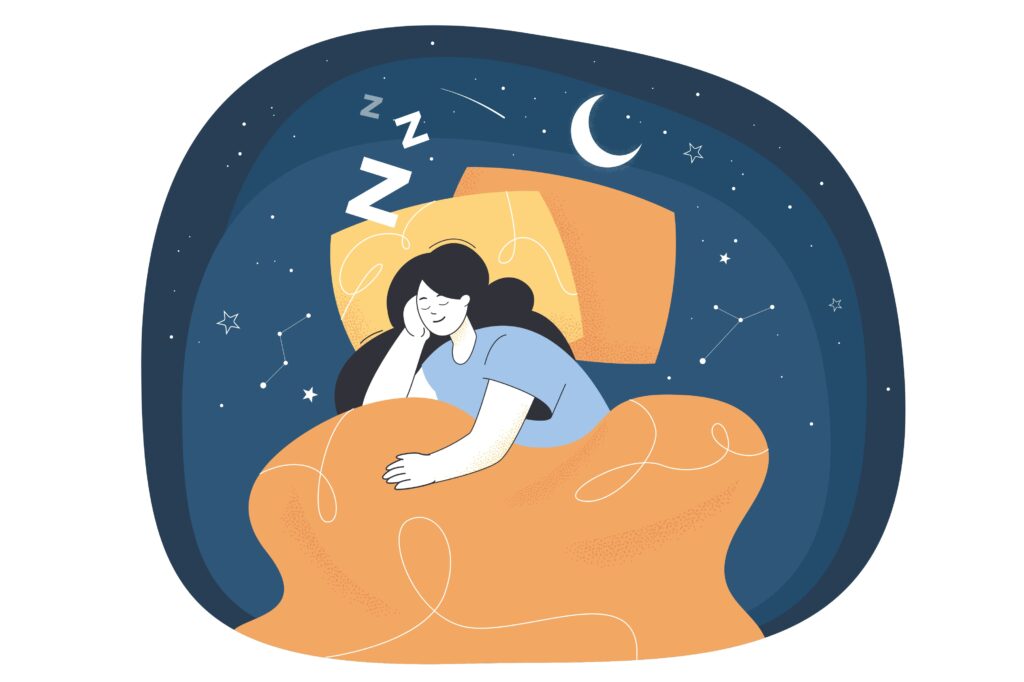At Cardiogram, we understand that sleep health is intricately connected to various aspects of our well-being. One intriguing area of study is the relationship between migraines and obstructive sleep apnea (OSA). Both conditions are prevalent and can significantly impact quality of life. But how exactly do they relate to each other? Let’s dive into the latest research to uncover this connection.
The Overlap Between OSA and Migraines

Migraines are a common neurological condition marked by intense headaches. OSA, characterized by repeated interruptions in breathing during sleep, affects millions worldwide. While they may seem distinct, emerging research suggests a noteworthy overlap.
A pivotal study published in the Journal of Clinical Sleep Medicine investigated the relationship between migraines and OSA in the general population. The findings indicated a higher incidence of migraine symptoms in those suffering from sleep apnea compared to the general population, indicating a potential overlap in the physiological pathways of these disorders.
A Systematic Review of Migraine and Sleep Disorders

Further expanding our understanding, a systematic review in The Journal of Headache and Pain explored the connection between sleep disorders, including OSA, and migraines. While the review found no direct causal relationship, it highlighted a significant association between these conditions. This suggests that while OSA might not directly cause migraines, it could exacerbate or influence migraine patterns in those predisposed to this type of headache.
Impact of Sleep Disorders on Migraine Sufferers

Another critical piece of research from PMC focused on how sleep disorders, particularly OSA, affect individuals with migraines. The study found that breathing-related sleep disorders and irregular sleep patterns could worsen migraine symptoms. This highlights the importance of addressing sleep quality in managing migraines effectively.
Understanding the Connection
The exact mechanism linking OSA and migraines is still under investigation. However, several theories exist:
- Interrupted Sleep Patterns: OSA disrupts sleep architecture, leading to poor sleep quality, which is a known trigger for migraines.
- Oxygen Fluctuations: The intermittent oxygen deprivation in OSA may lead to changes in brain chemistry that trigger migraines.
- Autonomic Nervous System Dysfunction: Both OSA and migraines involve dysregulation of the autonomic nervous system, suggesting a possible common pathway.
Explore Sleep Patterns to Reduce Migraines

The relationship between Obstructive Sleep Apnea and migraines is complex and multifaceted. While current research does not definitively establish a causal link, it underscores the importance of considering these conditions together, especially in individuals who suffer from both. For those managing migraines, it may be beneficial to explore sleep patterns and assess for OSA, as addressing sleep-related issues could potentially improve migraine symptoms. As research continues to evolve, we hope to gain deeper insights into these connections, paving the way for more effective treatments and management strategies.
Implications for Treatment

Understanding and managing these conditions require a holistic approach, considering the intricate ways in which our sleep health impacts our overall well-being. For migraine sufferers with OSA, effective management of sleep apnea through CPAP therapy or other treatments could potentially reduce migraine frequency and severity.
If you or a loved one suffers from migraines, as well as interrupted sleep patterns, loud snoring or any of the other common symptoms of sleep apnea, we recommend getting a fast and easy home-based sleep assessment.
Our Partner Ognomy
You can do this quickly and easily through Ognomy – simply sign up, book a virtual consultation with a board-certified sleep specialist and if eligible, they will send a sleep study to your door.

